Welcome
MADEININDONESIA.COM aims to serve as a one-stop shop digital platform to simplify exporting from Indonesia while assisting international buyers in B2B sourcing and procurement
MADEININDONESIA.COM aims to serve as a one-stop shop digital platform to simplify exporting from Indonesia while assisting international buyers in B2B sourcing and procurement
Multiple Quotes with Only One Request
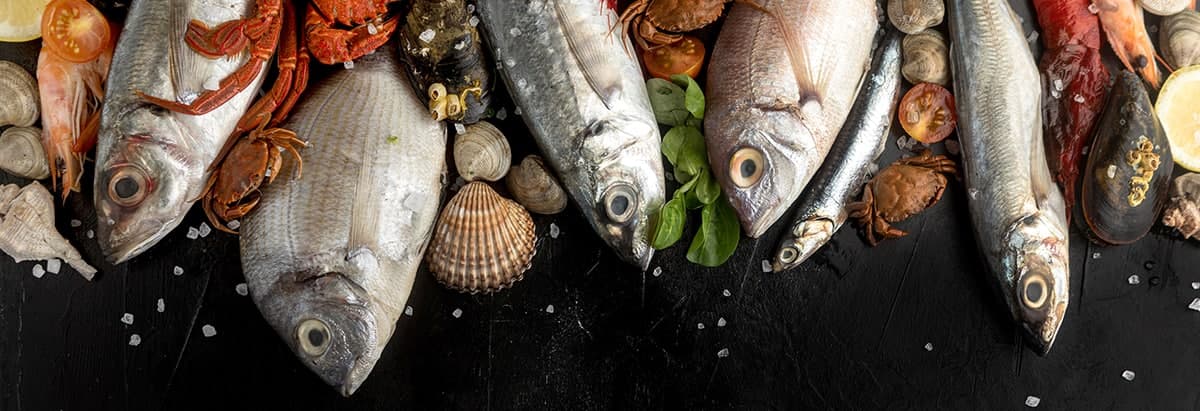
Tuna is a saltwater predator fish species that have a wide variety of species. Having a variety of sizes, colors and intensity of flavor. Tuna can be found in temperate and subtropical waters in Atlantic Ocean, Mediterranean and Black Sea. Indonesia is one of country with the largest tuna fishing and has been exported to Thailand, Tiongkok, Japan, Amerika Serikat, & Uni Eropa.
| Size | |
|---|---|
| 100/200 GR | 200/300 GR |
| 300/500 GR | 500/700 GR |
| 700/1000 GR |
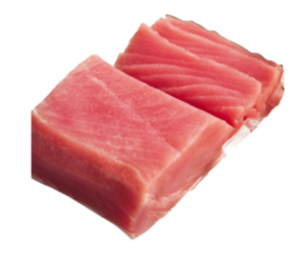
Tuna is a saltwater predator fish species that have a wide variety of species. Having a variety of sizes, colors and intensity of flavor. Tuna can be found in temperate and subtropical waters in Atlantic Ocean, Mediterranean and Black Sea. Indonesia is one of country with the largest tuna fishing and has been exported to Thailand, Tiongkok, Japan, Amerika Serikat, & Uni Eropa.
| Size | |
|---|---|
| 100/200 GR | 200/300 GR |
| 300/500 GR | 500/700 GR |
| 700/1000 GR |
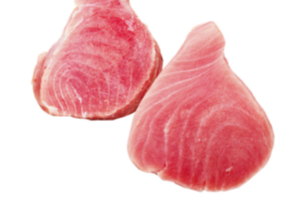
Tuna is a saltwater predator fish species that have a wide variety of species. Having a variety of sizes, colors and intensity of flavor. Tuna can be found in temperate and subtropical waters in Atlantic Ocean, Mediterranean and Black Sea. Indonesia is one of country with the largest tuna fishing and has been exported to Thailand, Tiongkok, Japan, Amerika Serikat, & Uni Eropa.
| Size | |
|---|---|
| 100/200 GR | 200/300 GR |
| 300/500 GR | 500/700 GR |
| 700/1000 GR |
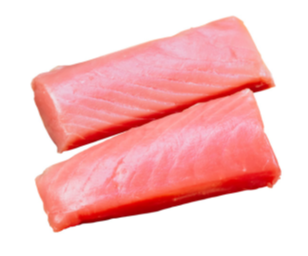
Tuna is a saltwater predator fish species that have a wide variety of species. Having a variety of sizes, colors and intensity of flavor. Tuna can be found in temperate and subtropical waters in Atlantic Ocean, Mediterranean and Black Sea. Indonesia is one of country with the largest tuna fishing and has been exported to Thailand, Tiongkok, Japan, Amerika Serikat, & Uni Eropa.
| Size | |
|---|---|
| 100/200 GR | 200/300 GR |
| 300/500 GR | 500/700 GR |
| 700/1000 GR |

The cobia (Rachycentron canadum) is a carnivorous marine fish that can reach a maximum size of 6 feet (183 cm) and 150 pounds (68 kg). This fish is widespread from the Indo-Pacific to the Atlantic Ocean to the south.
| Size | |
|---|---|
| 100/200 GR | 200/300 GR |
| 300/500 GR | 500/700 GR |
| 700/1000 GR |
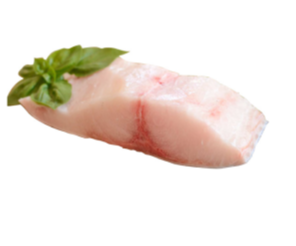
Swordfish has no scales and no teeth. Swordfish has a lot of nutritional value, every 3-ounce serving provides 566 units of vitamin D, or 93 percent of the daily value. Protein of Swordfish is important to maintain your muscle mass.
| Size | |
|---|---|
| 100/200 GR | 200/300 GR |
| 300/500 GR | 500/700 GR |
| 700/1000 GR |
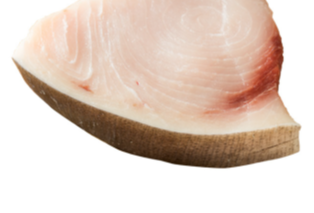
Swordfish has no scales and no teeth. Swordfish has a lot of nutritional value, every 3-ounce serving provides 566 units of vitamin D, or 93 percent of the daily value. Protein of Swordfish is important to maintain your muscle mass.
| Size | |
|---|---|
| 100/200 GR | 200/300 GR |
| 300/500 GR | 500/700 GR |
| 700/1000 GR |
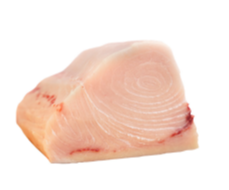
Marlin is one of several species of big fish. This fish comes from a family Istiophoridae (order Perciformes) which has an elongated body, nose, fins, backs and snout. Marlin is a carnivorous fish species that can be found in tropical and subtropical areas of the Atlantic, Pacific and Indian near from the surface to a depth of 915 m (3,002 ft). Marlin is a big fish with a body length reaches a maximum of 4.65 m and weighs 750 kg.
| Size | |
|---|---|
| 100/200 GR | 200/300 GR |
| 300/500 GR | 500/700 GR |
| 700/1000 GR |
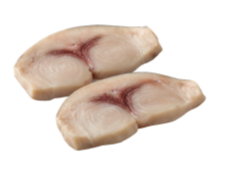
Code : IWP0100108
The milkfish or Ikan Bandeng (Chanos chanos) is the sole living species in the family Chanidae. However, there are at least five extinct genera from the Cretaceous.
View Product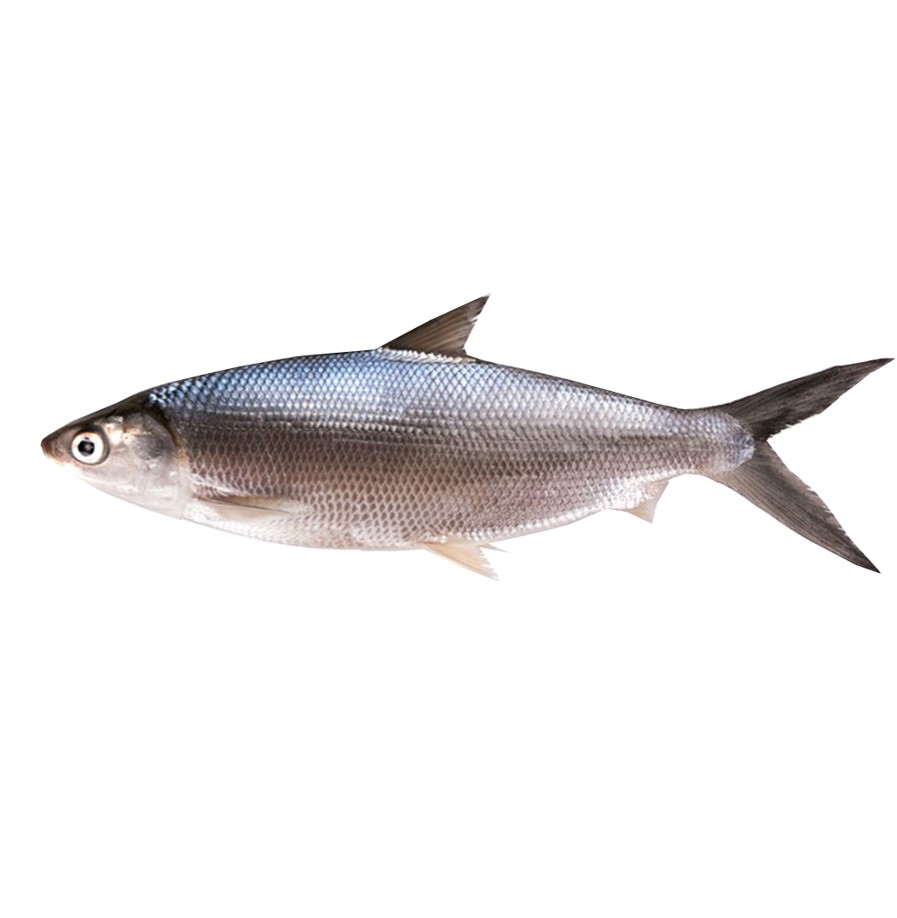
Code : IWP0100089
Cuttlefish have large, W-shaped pupils, eight arms, and two tentacles furnished with denticulated suckers, with which they secure their prey. They generally range in size from 15 to 25 cm (6 to 10 in), with the largest species, Sepia apama, reaching 50 cm (20 in) in mantle length and over 10.5 kg (23 lb) in mass.
View Product
Code : IWP0100090
Cuttlefish have large, W-shaped pupils, eight arms, and two tentacles furnished with denticulated suckers, with which they secure their prey. They generally range in size from 15 to 25 cm (6 to 10 in), with the largest species, Sepia apama, reaching 50 cm (20 in) in mantle length and over 10.5 kg (23 lb) in mass.
View Product
Code : IWP0100075
Cuttlefish or "fish" are animals that live in waters, especially rivers and seas or lakes. These animals can be found in almost all large waters, both fresh water, brackish water, and salt water at varying depths, from near the surface to several thousand meters below the surface. Cuttlefish is also a type of seafood.
View Product
Code : IWP0100092
Also known as Common Asohos, Common Sillago, Common Whiting, Indian Whiting, Northern Whiting, Sand Borer, Sand-smelt, Sand-whiting, Sillago-whiting, Silver Whiting, Smelt, Trumpeter Whiting, Whiting.
Found in over mud
or sandy depressions, of inshore waters, moving along estuaries, mangroves, sand-bars and sand flats, at high tide to feed. Adults will bury in the sand when threatened. They feed on invertebrates. Length - 30cm, Depth
- 0-60m. Widespread Indo-West Pacific.
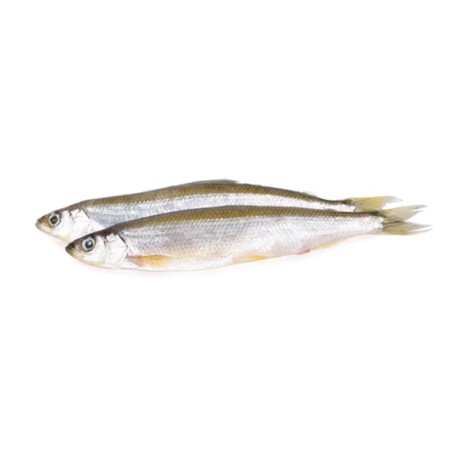
Code : IWP0100093
The areolate grouper is a large fish (up to 47 cm long, 1.4 kg) that lives near coral reefs. Its coloration is whitish to gray with rounded brownish spots. It is identifiable by a narrow, white, straight margin on its truncate tail. It has 11 dorsal spines, 15-17 dorsal soft rays, 3 anal spines and 8 anal soft rays.
View Product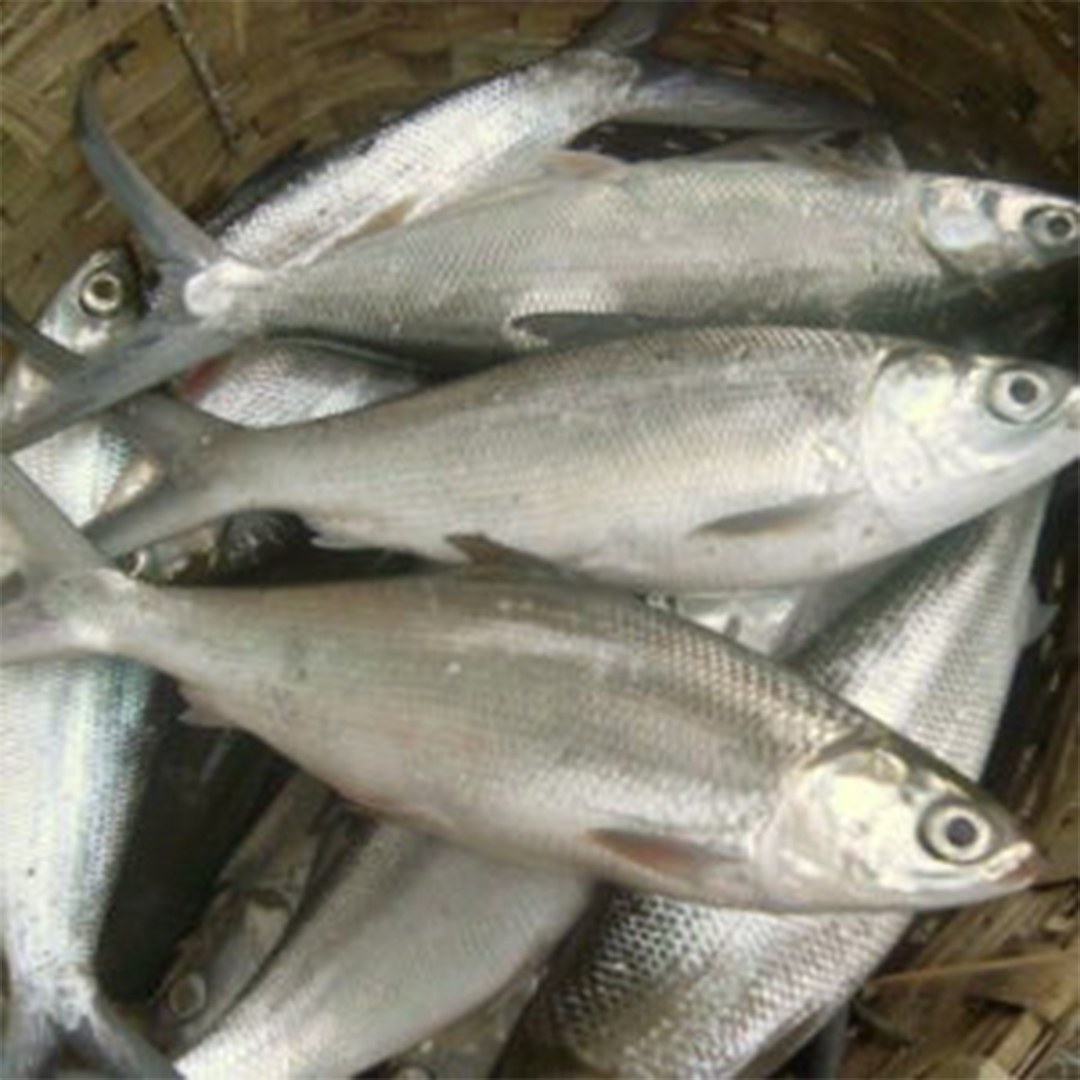
Code : IWP0100095
The king mackerel (Scomberomorus cavalla) or kingfish is a medium-sized fish, typically encountered from 5 to 14 kg (30 lb), but is known to exceed 40 kg (90 lb). The entire body is covered with very small, hardly visible, loosely attached scales. The first (spiny) dorsal fin is entirely colorless and is normally folded back into a body groove, as are the pelvic fins. The lateral line starts high on the shoulder, dips abruptly at mid-body and then continues as a wavy horizontal line to the tail.
View Product.jpg)
Code : IWP0100076
The skipjack tuna, Katsuwonus pelamis, is a medium-sized perciform fish in the tuna family, Scrombridae. It is otherwise known as the aku, arctic bonito, mushmouth, oceanic bonito, str
View Product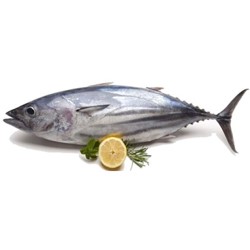
Code : IWP0100098
Tuna, or tunny, loins are the largest cuts of meat that processors cut from a whole tuna fish. Some food experts advise that a cook take special care while handling raw or frozen tuna.
View Product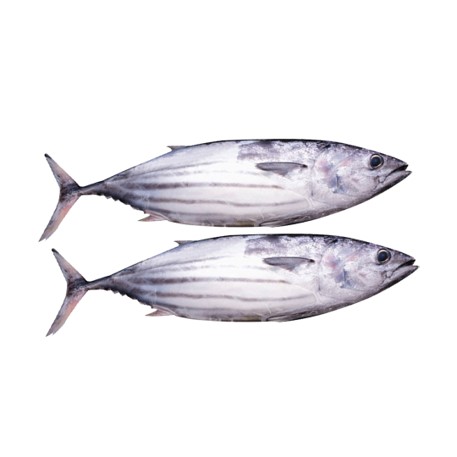
Code : IWP0100074
Lencam fish (Lethrinidae) are marine fish belonging to the Lethrinidae family known as emperor fish. This fish is a group of fish targeted by fishermen who are used as consumption fish. Other names for this fish in various regions in Indonesia are asual fish, asuan, gotila, gopo, ketamba lencam, sun, ramin and elbow.
View Product.jpg)
Code : IWP0100100
Decapterus is a genus of marine fishes in the family of jack family. Carangidae, commonly known as mackerel scads, round scads, or horse mackerel. They are found throughout the world.
View Product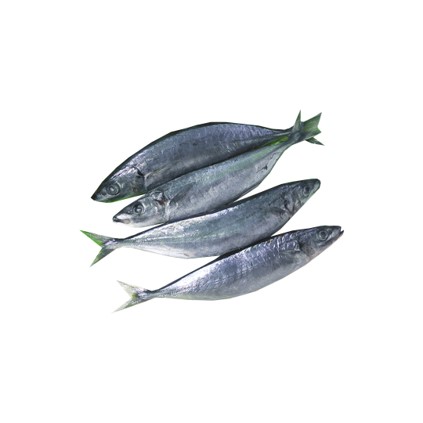
Code : IWP0100077
Mackerel (Scomberomorus commerson) or in Indonesia known as Ikan Tenggiri has tender and good quality of meat. Its body covered with small and light scales and its green-bluish.
View Product
Code : IWP0100068
Red snapper (Lutjanus bitaeniatus) is a species of snapper found in Indonesia. This fish is found mainly in the East Indian Ocean and is only known from a few specimens collected in Indonesia (near Sumatra and Sulawesi). Adult fish inhabit deeper reef areas. They live solitary or in small groups
View Product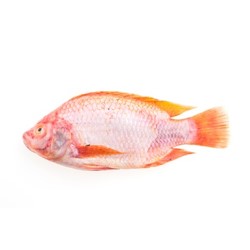
Code : IWP0100083
Grouper is caught in the Indonesian Water from Java, Bali and NTB by using hand line which give a low impact to our ocean and endangered species.
View Product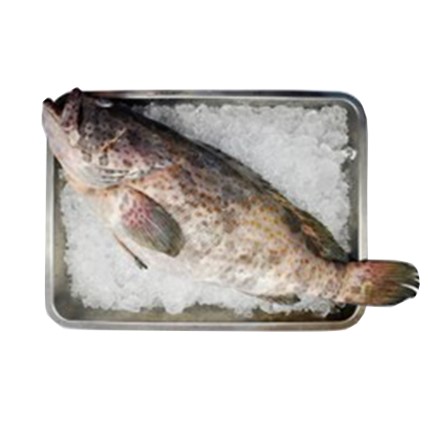
Code : IWP0100091
Lizardfish, any of about 57 species of marine fish of the family Synodontidae, found primarily in the tropics. Lizardfish are elongated with rounded bodies and scaly heads. They grow to a maximum length of about 50 centimetres (20 inches) and are characteristically mottled or blotched to blend with their surroundings. Most lizardfish live in shallow water. They tend to frequent sandy or muddy areas, and sometimes lie partly buried in the bottom.
View Product
Code : IWP0100066
Known as the chameleon of the sea, octopus is a boneless sea creature that is considered as a delicacy in many countries. Not only it tastes good and has low saturated fat, octopus consumption also promotes cardiovascular health and stimulates high cognitive system.
View Product
Code : IWP0100070
Squid are a group of large cephalopod animals or types of mollusks that live in the sea. The name ‘’Cephalopoda’’ in Greek means “head of the head”, this is because the legs are separated into a number of arms wrapped around the head. Like all cephalopods, squid are separated by having a distinct head. The large axon of this squid has a diameter of 1 mm. Squid are widely used as food.
View Product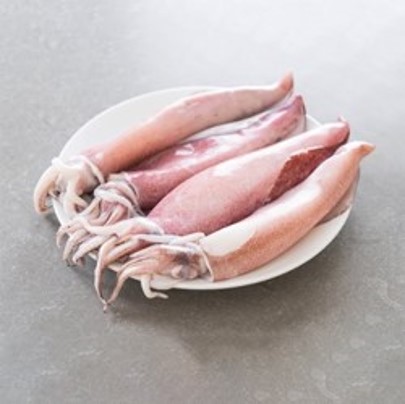
Code : IWP0100107
These estuarine cephalopods have mottled pinky-purple skin, long thin bodies, pointy side fins that run about half their body length, 8 shorter arms and 2 longer tentacles. They are caught in estuaries along the NSW coast and tend to gather near the riverbed during the day, spreading out at night throughout the water and coming to the surface to feed.
View Product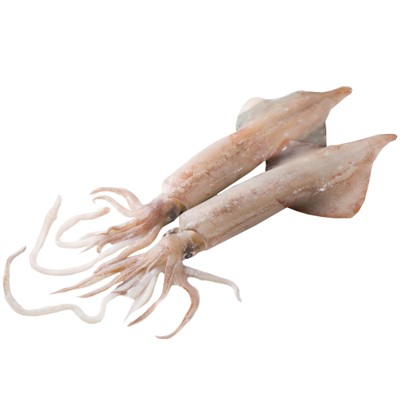
Code : IWP0100069
Parrot fish or Parrot Fish are marine fish species that are quite popular with the community. This fish has a lot of nutritional content for health, which is as a low-fat protein source.
View Product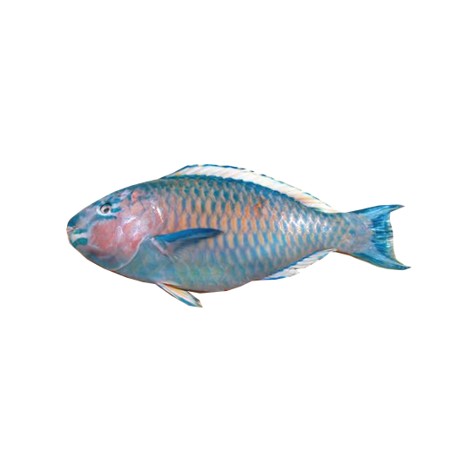
Code : IWP0100109
Hairtail Fish or Ikan Layur (Trichiurus lepturus) is a marine fish that is easily known from its long and slender shape. This fish is spread in tropical and temperate waters.
View Product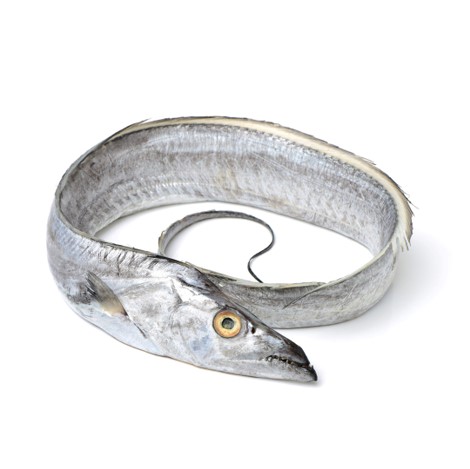
Code : IWP0100110
Barracuda name is applied to not only one particular fish, but the whole fish family. Sphyraenidae are a group of fish known collectively as barracudas. The species most known barracudas commonly encountered may be the large species of barracudas (Sphyraena barracuda).
View Product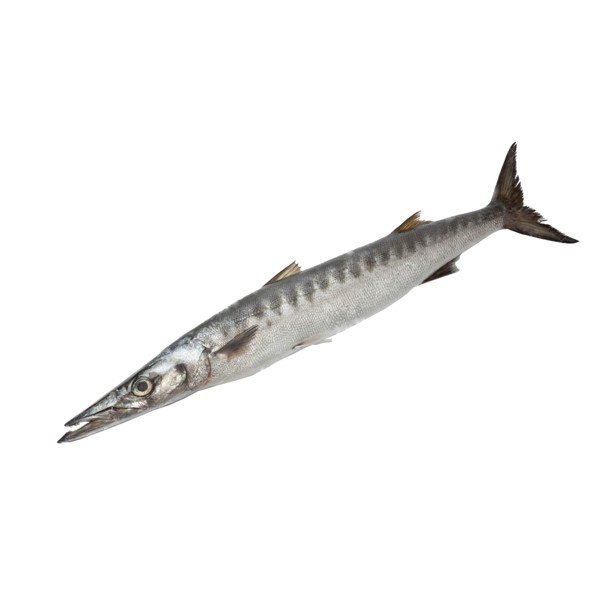
Code : IWP0100084
It is a commercially important fish and is sold in markets as food. His capture requires a license to ensure he is not threatened by over-catch by commercial fishermen
View Product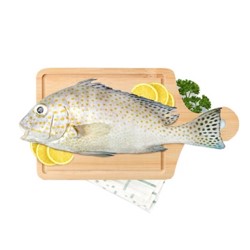
Code : IWP0100094
The bigeye snapper has a fusiform, slender body which has a standard length that is 2.9 to 3.3 as long as the body's deepest points. It has a gently sloped forehead and the preopercular incision and knob are weakly developed. The vomerine teeth are arranged in a triangular patch with a central rearwards extension and the tongue has a patch of grain-like teeth.
View Product
Code : IWP0100114
The Red Goatfish (Ikan Rembang), Parupeneus multifasciatus, also known as the Manybar Goatfish has a black/red body bisected by a thick cream-colored line and muted black lines. Like other goatfish species, the Red Goatfish has beard-like appendages called “barbels” dangling off of their lower lip used to probe the sand for sources of food.
View Product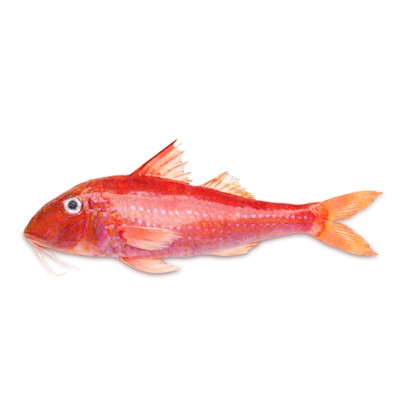
Code : IWP0100115
The threadfin breams are a family, Nemipteridae, of fishes in the order Perciformes. They are also known as whiptail breams and false snappers. They are found in tropical waters of the Indian and western Pacific Oceans. Most species are benthic (bottom-feeding) carnivorous, eating small fishes, cephalopods, crustaceans and polychaetes. However, a few species eat plankton. Inhabits muddy or sandy bottoms. Young fish generally occur in shallower water between 18 and 33 m.
View Product
Code : IWP0100116
The black pomfret (Parastromateus niger) is a species of carangid native to reefs of the Indian Ocean and western Pacific Ocean. This species is very important to local fisheries and is the only known member of its genus.
The black pomfret has a compressed deep body with dorsal and ventral profiles being equally convex. This species has small dark grey scales which cover the entirety of the body. The fork measurement of Black Pomfret is
commonly 30 cm but can also range up to 75 cm in length.

Code : IWP0100117
The bigeye snapper mostly lives throughout the Indo-Pacific. It is found in much of the Indian Ocean; specifically, from Japan to Australia and from East Africa to the Solomon Islands. It is common in the Pacific Ocean, particularly
in the Western parts of it. It also has been found in the Southeastern Atlantic ocean.
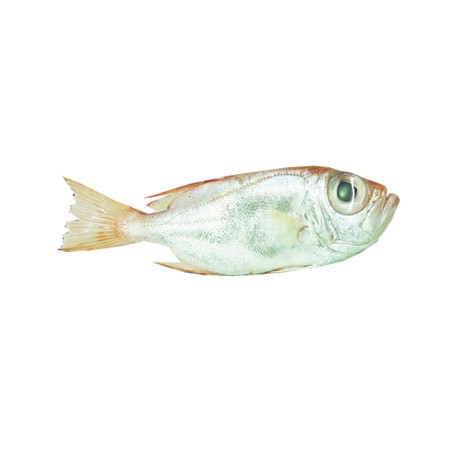
Code : IWP0100112
Conger eel, any of about 100 species of marine eels of the family Congridae (order Anguilliformes). Congers are scaleless eels with large heads, large gill slits, wide mouths, and strong teeth. They are usually grayish to blackish,
with paler bellies and black-edged fins.
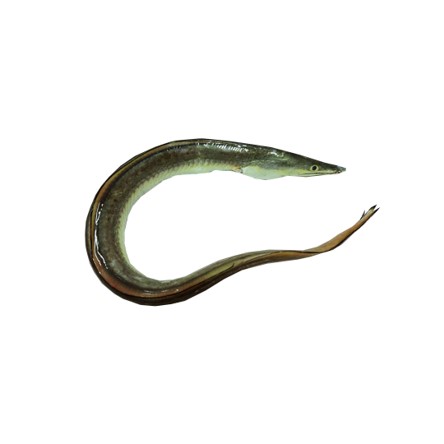
Code : IWP0100113
Sand Lobsters are found in all warm oceans and seas. Lobsters are typically bottom dwellers of the continental shelves, found at depths of up to 500 metres (1,600 ft).
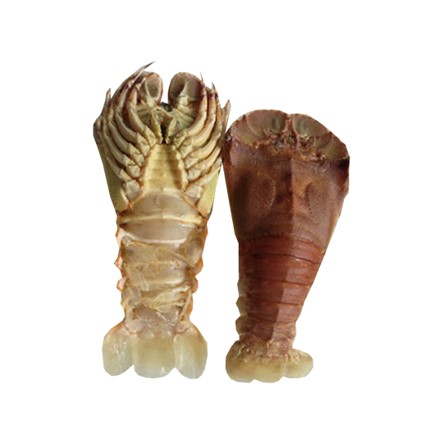
Code : IWP0100082
Shrimp are animals that live in waters, especially rivers, seas, or lakes. Shrimp can be found in almost all large "pools" of water, whether fresh, brackish or saltwater, at varying depths, from near the surface to several
thousand meters below the surface.
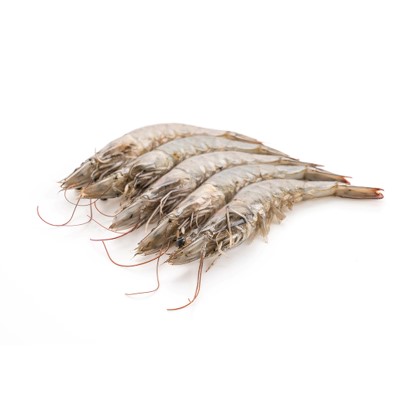
Code : IWP0100085
The Kurisi fish is known as a demersal fish that lives solitary with slow movements. The morphology of the kuris fish can be seen in Fig.

Code : IWP0100071
Kuwe gerong or belitong (Charanx ignobilis) is a common catch fish in the tropical Indo-Pacific region. In English it is known as giant trevally or GT (pronounced jiti). This fish is easily recognized by its large forehead
with a silvery yellow tinge.
.jpg)
Code : IWP0100073
Baronang (Siganus Sp.) is a group of marine fish belonging to the Siginidae family. This fish is known by the public with different names according to the species, such as in the Thousand Islands it is called kea-kea, in Central
Java it is called biawas and fishermen in Maluku Island call it samadar. Baronang is found in the shallow waters of lagoons in the Indo-Pacific region and the eastern Mediterranean. This fish in English is called rabbitfish
because of its eating behavior which eats plants (seaweed) neatly like being trimmed by a small grass machine. Baronang is one of the fish that is a favorite for anglers at sea.
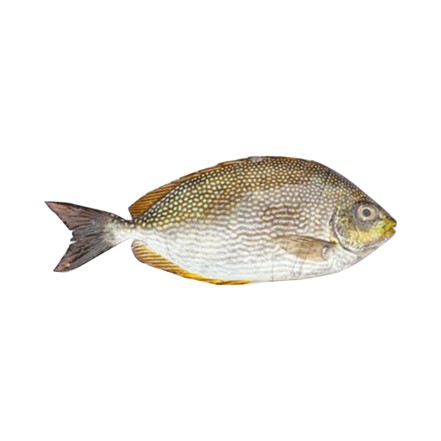
Code : IWP0100096
Butterfish, any of the thin, deep-bodied, more or less oval and silvery fishes of the family Stromateidae (order Perciformes). Butterfishes are found in warm and temperate seas and are characterized by a small mouth, forked
tail, and a single dorsal fin. Like the related rudderfishes (Centrolophidae) and man-of-war fishes (Nomeidae), they also have peculiar, toothed outpocketings in the esophagus.
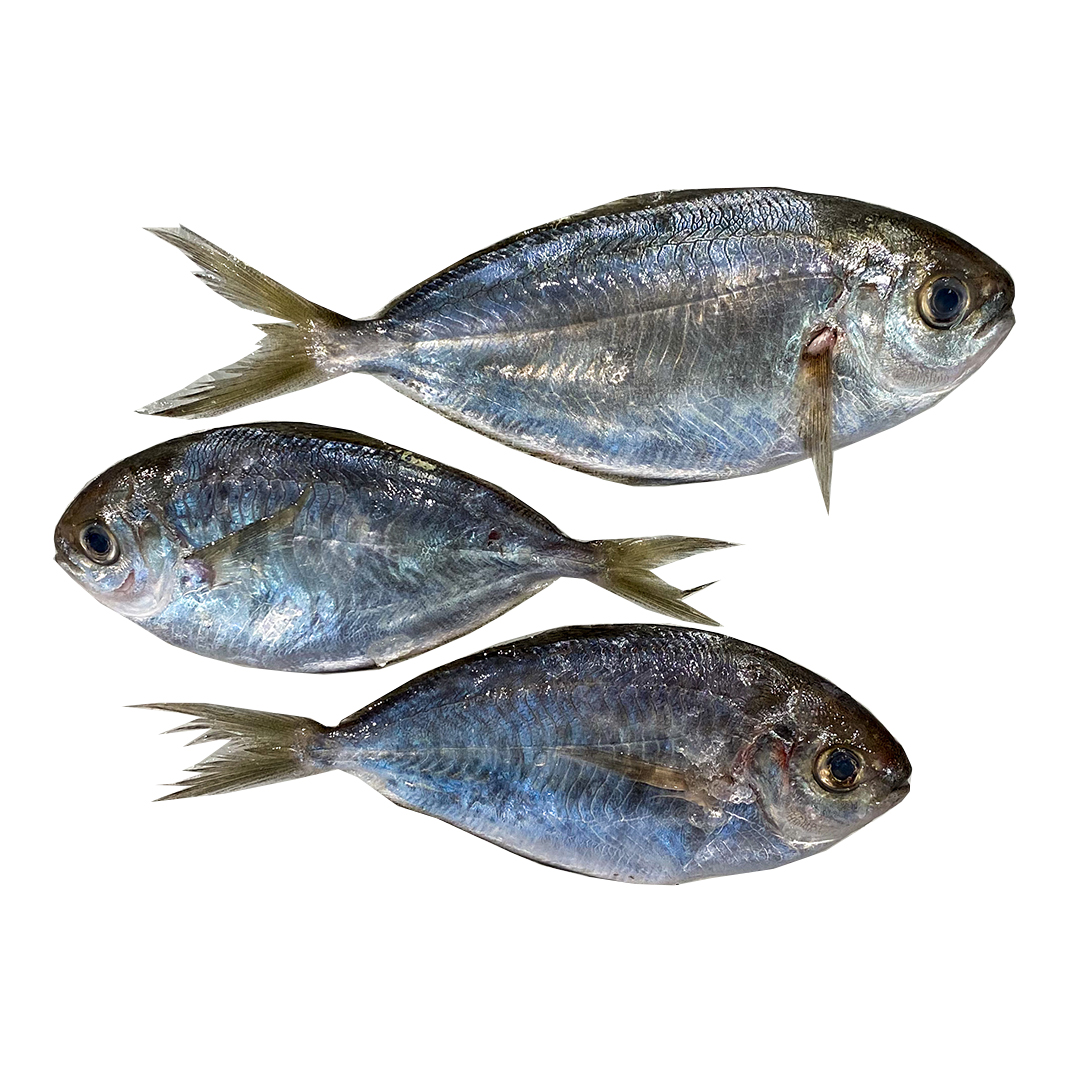
Code : IWP0100101
Colossal Lump consists of the two large muscles connected to the swimming fins, picked from the largest crabs. Colossal Lump should never be broken up for a recipe; it is best used in upscale cocktail presentations or in sautés, where the size of the lumps can really shine.
View Product
Code : IWP0100102
Jumbo Lump consists of the two large muscles connected to the swimming fins, picked from the largest crabs. Colossal Lump should never be broken up for a recipe; it is best used in upscale cocktail presentations or in sautés, where the size of the lumps can really shine.
View Product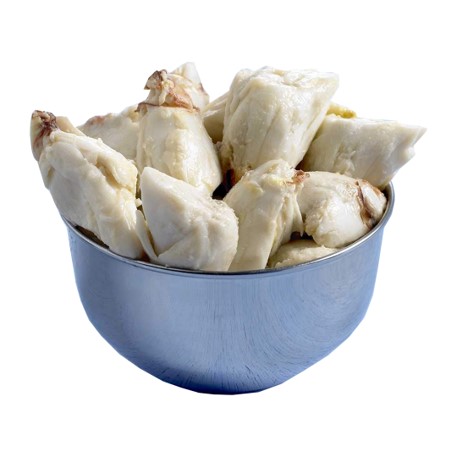
Code : IWP0100103
Backfin meat is a combination of jumbo lump meat and special grade meat, that usually appears to be loose and separated. Its fragile appearance looks excellent in soups, dips and crab cakes. You could also use this meat to stuff certain vegetables and seafoods for a delicious treat.
View Product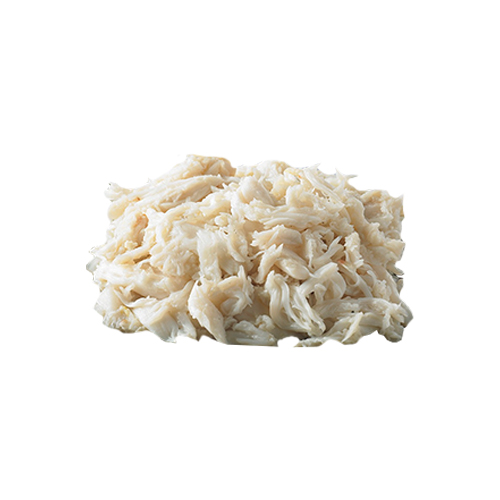
Code : IWP0100104
Super Lump meat drawn from shards Jumbo Lump (Back fin) meat. Suitable to serve as crab cakes and soups. Super Lump Crab Meat is composed mostly of broken jumbo lumps and smaller whole lumps of crab meat. These lumps are then blended with Special grade crab meat to create a versatile consistent product for a variety of presentation needs.
View Product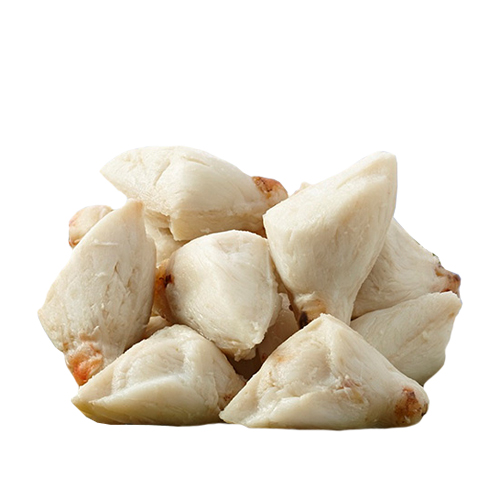
Code : IWP0100105
Colossal Lump consists of the two large muscles connected to the swimming fins, picked from the largest crabs. Colossal Lump should never be broken up for a recipe; it is best used in upscale cocktail presentations or in sautés, where the size of the lumps can really shine.
View Product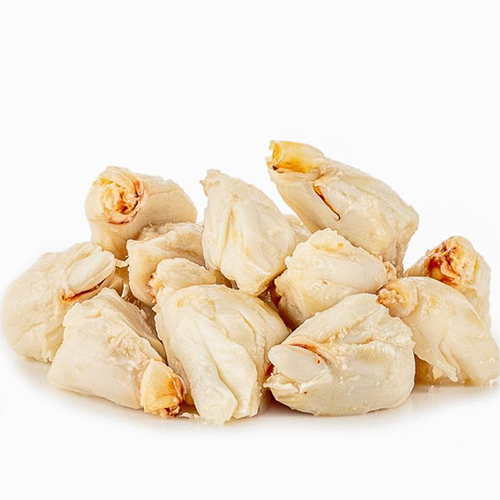
Code : IWP0100106
Claw meats are pure meat that comes from crab claws and crab legs, and then mixed together. Claw meat has a reddish color; this indicates that the Claw Meat purely derived from crab legs (except foot pool).
View Product